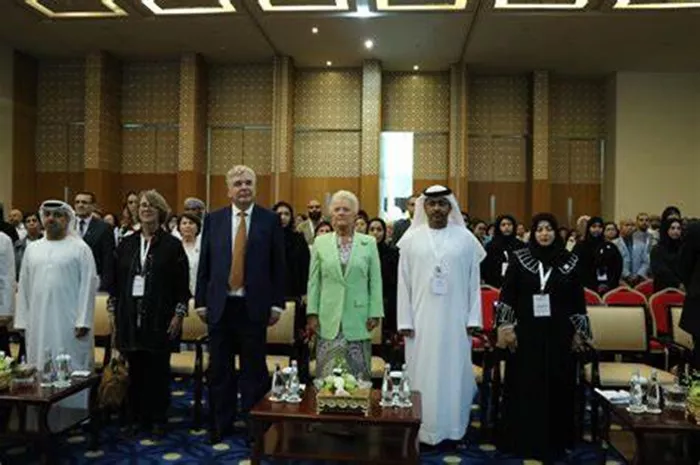In response to a significant increase in the recruitment of nurses from low- and middle-income countries (LMICs), the International Council of Nurses (ICN) has urged the World Health Organization (WHO) to implement a temporary moratorium on the active recruitment of nurses from nations listed on the WHO Health Workforce Support and Safeguard List.
The ICN’s proposal follows a sharp rise in the migration of nurses from LMICs to wealthier countries, which are grappling with severe nursing shortages. These recruitment efforts, which have intensified in recent years, threaten to deplete already fragile healthcare systems in countries that are struggling to achieve universal health coverage (UHC).
Alarming Trends in Nurse Recruitment
The WHO Health Workforce Support and Safeguard List currently identifies 55 countries facing critical health workforce challenges. These challenges are a significant barrier to achieving UHC, as the shortage of healthcare workers is one of the primary obstacles in these nations.
According to a recent ICN report to the WHO, high-income countries have been aggressively recruiting nurses from LMICs to address their own healthcare workforce shortages. This practice has led to a dramatic increase in the proportion of overseas-trained nurses in Organisation for Economic Co-operation and Development (OECD) countries, which surged from 5% in 2011 to nearly 9% in 2021.
UK’s Controversial Recruitment Practices
The United Kingdom has been particularly active in recruiting nurses from countries on the WHO’s “red list,” which includes nations with severe health workforce deficits. From September 2021 to September 2022, over 24,000 international nurses were registered in the UK, the highest number on record. Alarmingly, 19% of these nurses came from countries facing critical healthcare workforce shortages.
Although the UK’s National Health Service (NHS) is prohibited from actively recruiting from these red list countries, loopholes in the system allow nurses to be initially hired by private sector recruitment firms. These nurses can later transition to the NHS as passive recruits, effectively bypassing the ban on active recruitment.
The ICN has condemned this practice, noting that international recruiters are directly targeting healthcare workers in low- and lower-middle-income countries in Africa, Asia, and the Caribbean, in violation of the WHO Global Code of Practice on the International Recruitment of Health Personnel.
Widespread Impact on Low-Income Countries
The aggressive recruitment of nurses by wealthier nations has had devastating effects on healthcare systems in LMICs. For instance, Tonga and Fiji reported at the 2024 World Health Assembly (WHA) that they have lost between 20% and 30% of their nursing workforce, primarily to Australia and New Zealand.
In Fiji alone, 800 nurses resigned in 2022, leaving the country with 1,650 nursing vacancies and only 2,003 remaining nurses. Similarly, Jamaica and Zimbabwe are experiencing significant losses, with 20% of Jamaican nurses preparing to work abroad and over 900 Zimbabwean nurses emigrating to the UK in 2022.
The Philippines, which faces a current shortage of 190,000 healthcare workers, is projected to need an additional 250,000 nurses by 2030. In Ghana, around 500 nurses leave the country each month, depleting the nation’s pool of experienced and specialist nurses.
Balancing Migration Rights and Healthcare Needs
While the ICN recognizes and supports the right of nurses to migrate and pursue better opportunities, it is deeply concerned about the large-scale migration of nurses from vulnerable countries. The targeted recruitment by high-income nations, including the UK, USA, Canada, Australia, and Germany, is exacerbating the healthcare crisis in LMICs.
The ICN has condemned this trend, stating that it is undermining efforts to rebuild healthcare systems in LMICs post-pandemic and widening the healthcare gap between rich and poor nations. This situation poses a significant threat to achieving the United Nations Sustainable Development Goals, including UHC by 2030.
Efforts to Mitigate the Impact
In response to the growing crisis, some high-income countries are taking steps to increase their domestic nursing workforce. The UK’s NHS Long Term Workforce Plan, for example, aims to train over 60,000 nurses in England by 2029, a 54% increase from 2022/23. Similarly, Australia is developing a National Nursing Workforce Strategy, and Germany’s 2024 Nursing Studies Strengthening Act seeks to attract nursing students with financial incentives.
In the Philippines, the Department of Health has allocated funds to provide nurses with health insurance, housing, and other benefits in an effort to reduce nurse migration. However, many LMICs continue to struggle with nursing shortages due to insufficient funding and structural issues.
In Lesotho, nearly a third of professional nurses and midwives are unemployed due to a lack of funding, despite the country’s urgent need for healthcare workers. The ICN stresses the need for support to help LMICs develop and strengthen their healthcare systems to meet their populations’ needs.
Addressing Underlying Issues
The ICN also highlighted the growing unrest among healthcare workers in LMICs. Over the past three years, there has been an increase in labor strikes and protests in countries such as Uganda, Ghana, Fiji, and Tonga. These actions reflect the underlying issues driving nurse migration, including poor working conditions, low pay, and safety concerns.
To address these challenges, the ICN emphasizes the importance of strengthening healthcare systems in LMICs rather than depleting them through the continued recruitment of their workforce. Without concerted efforts to improve conditions for healthcare workers in these countries, the global health crisis will only worsen.
[inline_related_posts title=”You Might Be Interested In” title_align=”left” style=”list” number=”6″ align=”none” ids=”11343,11453,11400″ by=”categories” orderby=”rand” order=”DESC” hide_thumb=”no” thumb_right=”no” views=”no” date=”yes” grid_columns=”2″ post_type=”” tax=””]
































